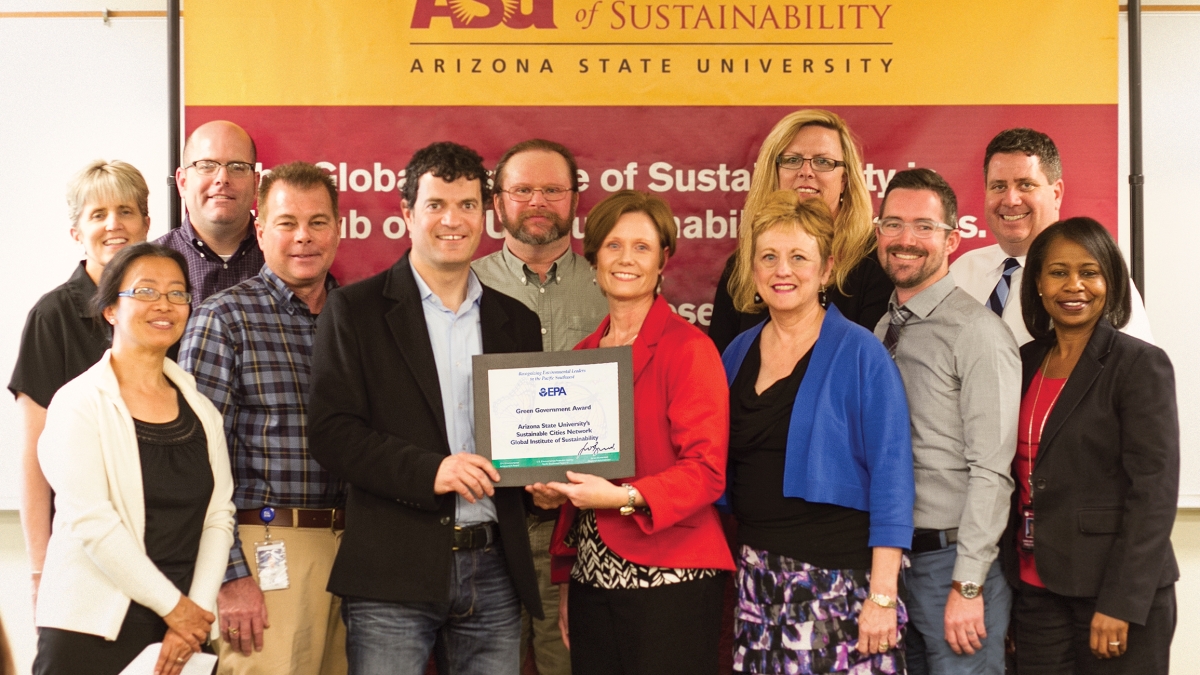Sustainable Cities Network earns Green Government award

The U.S. Environmental Protection Agency recognized Arizona State University’s Sustainable Cities Network and its efforts in educating and promoting sustainability throughout the state.
On March 4 Jared Blumenfeld, the EPA’s Region 9 administrator and former director of the San Francisco Department of the Environment, presented the network’s program manager Anne Reichman with the Pacific Southwest Region’s 2012 Green Government award at ASU’s Global Institute of Sustainability.
Reichman says the past four years have been busy for the network, and collaborations outside of Phoenix have increased.
“The network shows what can happen when organizations and individuals come together and focus on the positives and the things they share in common,” says Reichman. “Sustainability is a very broad topic so it’s exciting to convene the cities on some very specific areas such as solar and energy efficiency.”
The Sustainable Cities Network was developed as a program within the Global Institute of Sustainability in response to challenging sustainability issues surrounding Arizona. Through local partnerships, the network brings together experts, community members, tribal leaders and city officials to gather lessons learned and share them with neighboring cities. Work groups collaborate on sustainability issues such as solar installation, urban heat island mitigation, city-wide recycling initiatives and neighborhood design.
“Sustainability is really about where you live,” says Blumenfeld. “And the network that’s been created from in and around metro Phoenix is really a testament to what the Sustainable Cities Network has been willing to do, and also a testament to ASU’s work in the community and ability to think about not just global issues, but local issues.”
Since the network’s inception in 2008, volunteers have connected with local and tribal sustainability practitioners from more than 25 jurisdictions and Maricopa County. The Sustainable Cities Network is an excellent example of ASU leveraging its place and supplying research to surrounding communities.
“It’s nice to see the cities use the network as a vehicle by which they can share what they’ve learned,” says Reichman.
Since 1999, the EPA has acknowledged scientists, organizations, teachers, journalists and others for their significant contributions to “protecting public health and preserving our natural surroundings” through its Environmental Awards.
Together, the EPA and the Sustainable Cities Network provide real-world solutions in ways that are applicable, adaptable and resourceful.
For more information on the Sustainable Cities Network, visit http://sustainablecities.asu.edu/.